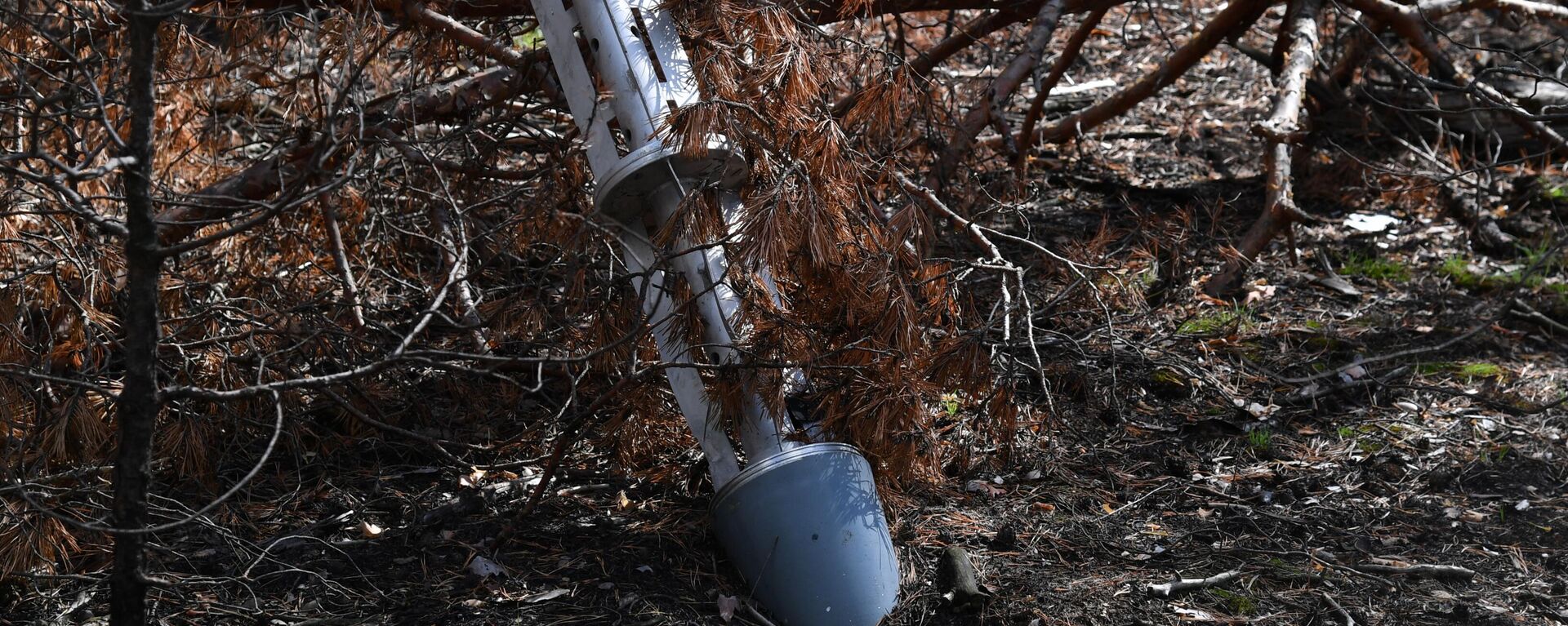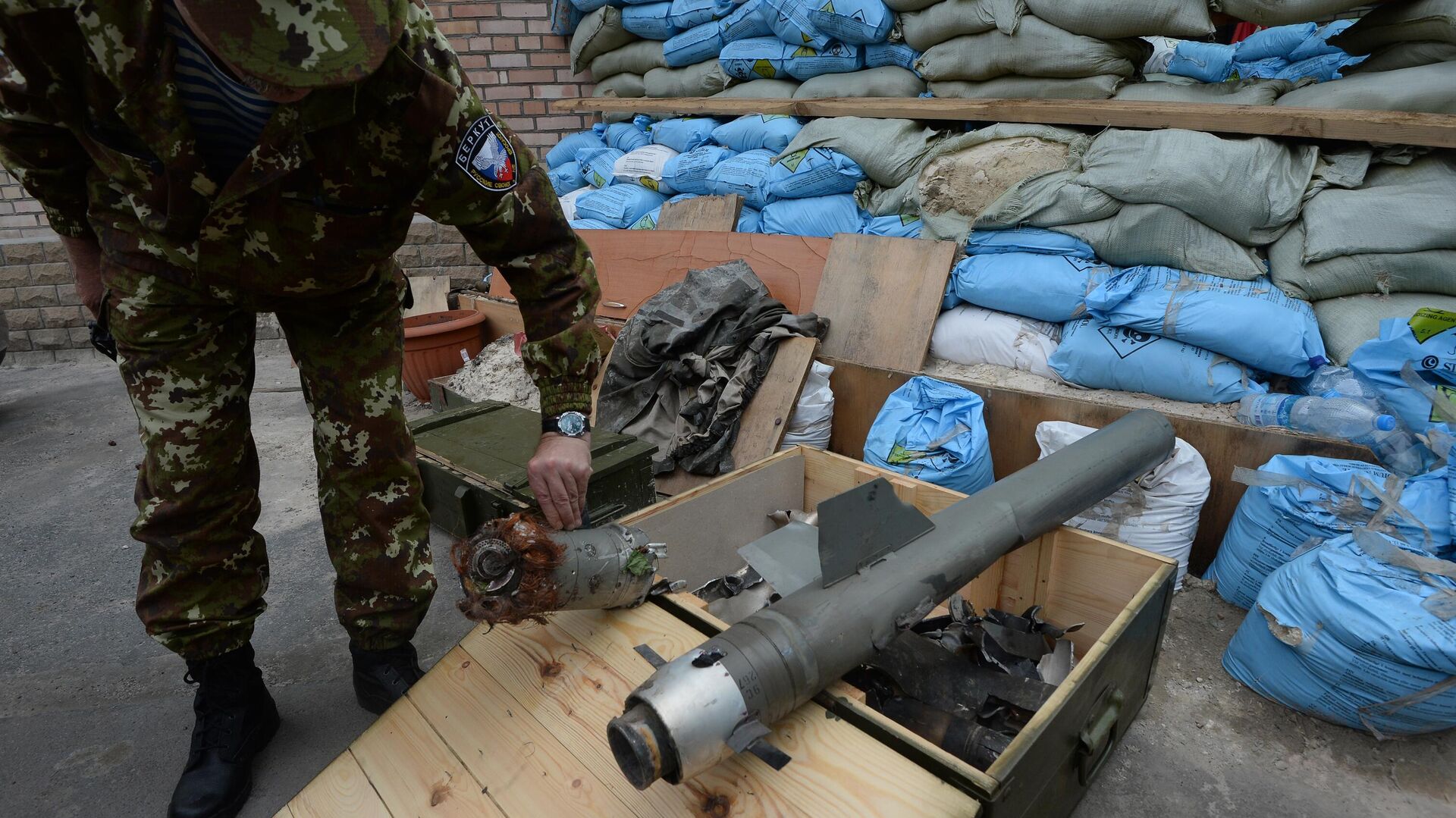https://sputnikglobe.com/20230821/ukrainian-artillery-fire-faulty-shells-20-just-fizzle-out--1112753627.html
Ukrainian Artillery Fire Faulty Shells: 20% Just Fizzle Out
Ukrainian Artillery Fire Faulty Shells: 20% Just Fizzle Out
Sputnik International
Ukrainian forces are launching intense artillery fire on Russian positions in Zaporozhye near the village of Rabotino on a daily basis, but about 20% of Ukrainian shells fail to detonate, according to a fighter from the 71st Guards Motor Rifle Regiment.
2023-08-21T11:34+0000
2023-08-21T11:34+0000
2023-08-21T11:34+0000
russia's special operation in ukraine
ukraine
zaporozhye region
cluster bombs
cluster munitions
https://cdn1.img.sputnikglobe.com/img/07e7/07/08/1111753198_0:175:3019:1873_1920x0_80_0_0_6ac803f42000853d971ecc0a9026eab9.jpg
"Every morning, our wake-up call isn't an alarm clock, but rather artillery fire. Starting at 4 a.m., tanks are heavily engaged, as well as AGS [automatic grenade launchers], and artillery — everything that can be used - rains down on us. And quite often, about 20% of the shells do not explode. There are also cases with cluster munitions, where the shell explodes but does not deliver its submunition payload. It just explodes in the air [without the submunition detonation]," said "Monk."In his opinion, this could be due to the age of the shells or to violations in the conditions of their storage.Ukraine has received cluster munitions from the United States, despite them being banned by an international convention that 123 countries have ratified, except the United States and Ukraine.When cluster bombs explode, they release smaller munitions, so-called submunitions, some of which are technically inoperable. This poses a threat to civilians: unexploded shells become landmines that can kill or maim people long after hostilities have ceased.
https://sputnikglobe.com/20230818/un-stands-firmly-against-using-cluster-bombs-in-ukraine-anywhere-1112715053.html
ukraine
zaporozhye region
Sputnik International
feedback@sputniknews.com
+74956456601
MIA „Rossiya Segodnya“
2023
Sputnik International
feedback@sputniknews.com
+74956456601
MIA „Rossiya Segodnya“
News
en_EN
Sputnik International
feedback@sputniknews.com
+74956456601
MIA „Rossiya Segodnya“
Sputnik International
feedback@sputniknews.com
+74956456601
MIA „Rossiya Segodnya“
ukraine cluster munitions, ukraine cluster bomb use, cluster bombs banned, ukraine cluster munitions 2022, ukraine cluster munitions 2023, ukraine cluster munitions use
ukraine cluster munitions, ukraine cluster bomb use, cluster bombs banned, ukraine cluster munitions 2022, ukraine cluster munitions 2023, ukraine cluster munitions use
Ukrainian Artillery Fire Faulty Shells: 20% Just Fizzle Out
MELITOPOL, Zaporozhye region (Sputnik) — Ukrainian forces are launching intense artillery fire on Russian positions in Zaporozhye near the village of Rabotino on a daily basis, but about 20% of Ukrainian shells fail to detonate, according to a fighter from the 71st Guards Motor Rifle Regiment, call sign "Monk."
"Every morning, our wake-up call isn't an alarm clock, but rather artillery fire. Starting at 4 a.m., tanks are heavily engaged, as well as AGS [automatic grenade launchers], and artillery — everything that can be used - rains down on us. And quite often, about
20% of the shells do not explode. There are also cases with cluster munitions, where the shell explodes but does not deliver its submunition payload. It just explodes in the air [without the submunition detonation]," said "Monk."
In his opinion, this could be due to the age of the shells or to violations in the conditions of their storage.

18 August 2023, 18:48 GMT
Ukraine has received
cluster munitions from the
United States, despite them being banned by an international convention that 123 countries have ratified, except the United States and Ukraine.
When
cluster bombs explode, they release smaller munitions, so-called submunitions, some of which are technically inoperable. This poses a threat to civilians: unexploded shells become landmines that can kill or maim people long after hostilities have ceased.



